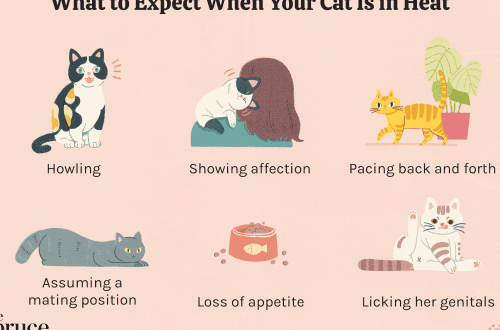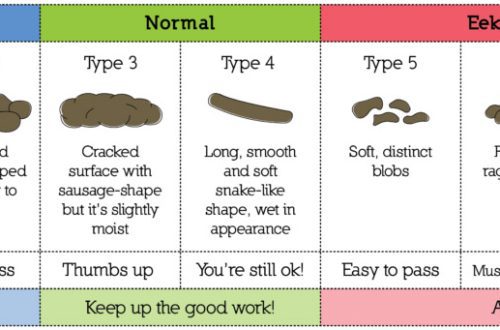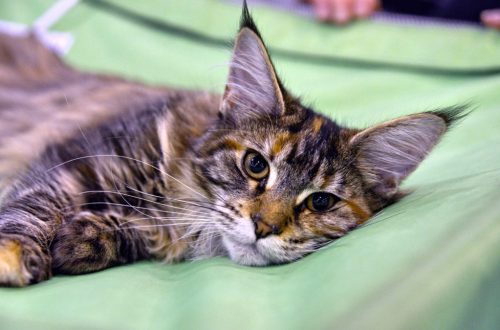
How to stop a cat from begging for food
If you have a cat, you have most likely experienced the fact that she either begs for food or steals it from the table in the most brazen way. Not the most pleasant habit, you will agree. Why does a cat beg or steal food and how to wean him from this habit?
Causes of the problem Before attempting to get rid of such behavior, it is necessary to find out why the pet behaves this way.
The cat is not getting enough food. Consult your veterinarian: your pet may not be getting enough of the nutrients he is getting from his food, or the serving size is too small. Maybe the diet is wrong.
The cat is spoiled. If you haven’t spent enough time raising your furry pet, he may be over-spoiled. If you allowed her to climb on the table and on the kitchen surfaces from childhood, then she could keep this habit into adulthood.
- Your pet is very curious. The cat may be interested in what is on the table. Food can emit delicious and interesting smells, and even the most well-mannered pet will not resist the temptation.
Consequences of stealing food If your cat is on a diet of balanced dry or wet food that has been prescribed by a veterinarian to maintain the health of the pet, then it is not recommended to give food from your table, even if it is skinless chicken breast, as this may, for example, contribute digestive problems. Also, some products are not recommended for pets according to recommendations American Society Against Cruelty to Animals.
Milk. Oddly enough, cow’s milk is in the first place. In adult cats, in most cases, there is not enough enzyme that can digest milk, which can lead to indigestion.
Chocolate. Sweet for cats is poison, and first of all it is chocolate. The caffeine in chocolate can lead to muscle overexcitation, and theobromine can be fatal.
Onion and garlic. Both products irritate the mucous membrane and cause digestive disorders in cats, not only fresh, but also fried, boiled and baked. And the substances contained in onions can lead to the destruction of red blood cells, i.e. to anemia.
Raw meat and fish. Although at first glance it seems to be quite safe foods, however, raw meat and fish can contain disease-causing bacteria that can cause food poisoning, and they can also become carriers of parasitic helminths. Raw fish contains an enzyme that destroys thiamine, an essential B vitamin, which can lead to neurological disorders (convulsions, coma).
Raw eggs. Eating raw eggs in cats, like humans, increases the risk of developing food poisoning caused by E. coli, salmonella and other pathogenic bacteria. Raw egg white also contains the enzyme avidin, which interferes with the ability of cats to absorb biotin, an important B vitamin.
- Grapes and raisins. Why grapes and raisins are toxic to cats is not fully understood. But they cause kidney problems in pets. However, there is good news – in the vast majority of cases, cats are not at all interested in eating either fresh or dried grapes.
- Alcohol. Strong drinks are not very useful for humans either, and in cats they can cause irreversible damage to the nervous system.
How to stop a cat from begging for food In order for your pet to stop begging or stealing food from the table, you need to take action and consistently follow all the training steps. If you drive her off the table, and your relatives encourage such behavior, it will be very difficult to wean a cat to ask for food.
What other steps should be taken?
First of all, do not provoke your pet to steal. Do not leave food and leftover food unattended on the table and kitchen surfaces. After lunch or dinner, immediately put away leftovers in the refrigerator or tightly closed containers.
Don’t leave dirty dishes in the sink. The cat may try to lick the plates.
Don’t allow your cat to climb on the table. If prohibitions do not help, do not let her into the kitchen.
Be consistent and persistent. Strictly forbid household members to feed the animal with leftovers.
- Create an alternative to the kitchen table for your cat if she likes to watch out the window from the table. Put a soft bedding on the windowsill or make a special shelf near the window for it.
If you’ve tried all of the methods listed above and still haven’t succeeded, contact your veterinarian for advice. Perhaps he will suggest additional ways to wean your pet from stealing or cat training courses.





